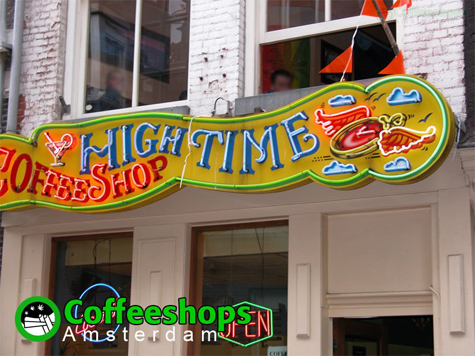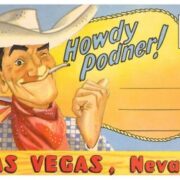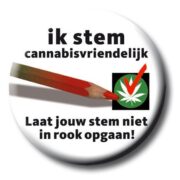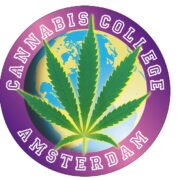New Year’s Eve in Amsterdam was even more festive than usual this season as thousands of European visitors flocked to the city to enjoy what they believed would be the last night they’d be welcome in the coffee shops of the Netherlands.
For several months, the reigning Dutch government had been trumpeting the imminent demise of the old coffee shop regime as of Jan. 1, 2012, and the mainstream media were only too eager to amplify the message.
Under the mandated new rules, all existing Dutch coffee shops would be converted to members-only clubs strictly limited to the patronage of Dutch citizens and registered expatriates, and the dreaded “drug tourists” from all over the world would be barred from entry.
But after the border city of Maastricht and other municipalities in Holland demanded that the government delay its plans for at least a year, Justice Minister Ivo Opstelten announced in November that the system won’t be introduced nationwide until 2013.
At the same time, Opstelten insisted that cannabis cafés in three towns in the south of the country — Noord-Brabant, Limburg and Zeeland — will have to turn themselves into members-only clubs by May 1 of this year as a sort of pilot program for the new policy.
Coffee shop owners in Maastrict have already banned all but Dutch, German and Belgian nationals from buying cannabis products in an effort to appease the government, and the border towns of Bergen op Zoom and Roosendaal have gotten rid of their coffee shops altogether.
Elsewhere in the Netherlands, 16 coffee shops In Rotterdam have been shut down because they were located within 250 meters of schools. If this proscription were applied across the country, another 94 coffee shops would have to close. To make things even worse, the government wants to extend the distance-from-school rule from 250 to 350 meters, which will shut down even more coffee shops.
This whole mess started in 2006 when the city of Maastricht decided to ban tourists from the local coffee shops and a coffee shop owner was forced to close after two non-Dutch nationals were found on his premises.
In upholding the legality of the city’s action, The Netherlands’ highest court, the Council of State, appealed to the high European court — sort of the EU equivalent of the U.S. Supreme Court — to issue a ruling that the Maastricht ban does not conflict with EU laws.
Last July, EU Advocate General Yves Bot said the Netherlands was within its rights to ban tourists from coffee shops. Bot said he considers the move necessary to “protect public order” and “reduce the nuisance caused by drug tourism.” In addition, Bot said, the ban would contribute to European efforts to combat the illegal drug trade.
In Amsterdam, the City Council opposes the introduction of the membership scheme. “We are concerned about the problems that will arise from large-scale street dealing,” one councilman said, adding that “there are also health concerns, because with street dealing we cannot monitor the quality of the soft drugs or the age of the buyers.”
The city had solved these problems in the early 1970s when it decriminalized recreational drug use and allowed the establishment of coffee shops as places where cannabis products could be sold and consumed in-house.
But the Dutch policy of tolerance has never been at all popular with most other European governments nor the draconian American authorities, and the social truce that has allowed over-the-counter cannabis commerce in Holland to flourish has always been an uneasy one.
The recent demonstration of official opposition to the coffee shop culture has been a long time coming, but now it looms large on the immediate societal horizon. The Christian Democratic party (CDA) that ruled in the 1990s and early 2000s and remains part of the current government has never fully accepted the “gray area” philosophy, and now that its coalition partners comprise the Liberals and the anti-Islam party led by Geert Wilders, the CDA is making its move with unprecedented confidence.
The intensified crackdown on the coffee shop culture seems to have been enabled by the findings of a government commission in 2009 that concluded hashish and marijuana are far more powerful now than when the “gray area” policy was introduced in the 1970s. (This increase in potency, of course, is the result of the rapid development of the Dutch growing community and its wizardry in generating new and ever more effective strains of marijuana.)
At the same time, according to the authorities, the bigger the coffee shop industry becomes, the more likely it is to come into the grasp of “organized crime.” To that end, the commission recommended cafés become smaller and should sell only to locals.
The illegal growing industry is thought to be worth some $2.6 billion a year, involving some 40,000 people in marijuana cultivation operations on what they call plantations, of which some 5,000 are busted each year. The Dutch government now intends to increase its efforts to drive “organized crime” out of the production and trade of marijuana and to seize the assets of convicted drug criminals.
The crazy thing is that, with marijuana cultivation and distribution remaining illegal, persons engaged in these activities are organized criminals by definition. If they really want to get “organized crime” out of the cannabis business, they would simply legalize marijuana completely and all that crime would just go away since it wouldn’t be “criminal activity” any longer.
The war against marijuana users and the cannabis culture is particularly absurd because there’s no social harm that’s ever been proved to result from viping beyond the possible inducements to race-mixing and guilt-free sexual activity that are proscribed by the orthodox religious order.
Here in Holland, the long-term tolerance of the cannabis culture has both created an atmosphere that attracts weed-smoking pilgrims to make up a significant portion of the local tourist economy and fostered a full-scale cannabis industry that generates billions of euros worth of business within the intimate confines of this tiny nation.
Accordingly, every knowledgeable person I have consulted about the issue continues to scoff at the notion that the state can transform the coffee shop culture by means of the pending legislation.
My friend and mentor Michael Veling, proprietor of the 420 Café and a life-long cannabis activist in Amsterdam, remains convinced that the year-long moratorium now in effect will no doubt end in a further extension of the truce rather than a victory for the suppressive forces.
“There is no way they are going to be able to demonstrate in the courts that ‘drug tourism’ constitutes a ‘public nuisance’ or a ‘threat to public order,’” Veling told me, adding that Justice Minister Opstelten, a Liberal Party member, will have to report back to the CDA representatives — who started this shit thinking they could finally win the battle — that he tried everything but it proved impossible to enforce their mandate and things will have to continue as before.
At any rate, Veling stressed, would-be drug tourists from America and elsewhere will definitely be welcome in the coffee shops of Holland for at least the entire present year. C’mon over, he said, we appreciate your business.
John Sinclair, founder of the White Panthers, is a poet. His latest book is ‘It’s All Good: A John Sinclair Reader.
February 3rd 2012.
Source: CounterPunch Editorial








